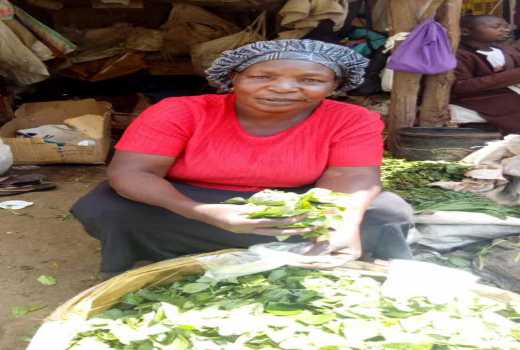×
The Standard e-Paper
Join Thousands Daily

NAIROBI, KENYA: When Rose Auma started selling traditional vegetables 43 years ago, she never thought it would attract any clients let alone competition.
As a young and pretty 27-year-old girl with a bright future, Auma travelled to Budalangi for fresh produce to sell at korogocho where at that time, there was no competition at all.